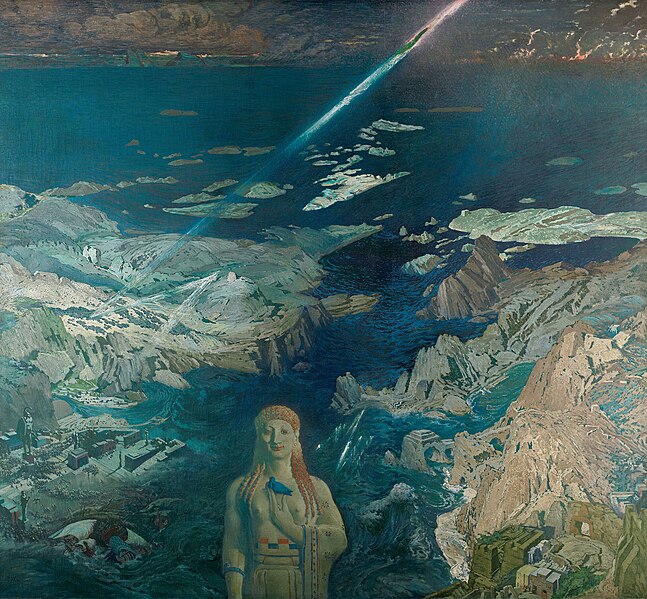
The first two decades of the twentieth century represent a transitional stage in European drama between 19th century realism and the avant-garde currents that would define the interwar and postwar years. This course invites students to explore a sample of the rich variety of experimental plays that emerged in that period, to discover how many of our own contemporary preoccupations they reflect, while also attempting to grasp their historical context and grappling with the definitions of modernity and modernism. Students will read 19 plays, beginning with Sophocles' Oedipus and the medieval Everyman as indispensable points of reference:
Week 1: Introduction
Week 2: Oedipus Rex; Aristotle’s Poetics (excerpts); Everyman
Week 3: Salome (Wilde, 1893)
Week 4: When We Dead Awaken (Ibsen, 1899)
Week 5: A Dream Play (Strindberg, 1901); Sacred Blood (Gippius, 1900); Cathleen Ni Houlihan (Yeats, 1902)
Week 6: The Lower Depths (Gorky, 1902); Riders of the Sea (Synge, 1904)
Week 7: On Baile's Strand (Yeats, 1903); A Puppet Show (Blok, 1906)
Week 8: The Stranger (Blok, 1907); The Blue Bird (Maeterlinck, 1908)
Week 9: The Triumph of Death (Sologub, 1908); Helen of Sparta (Verhaeren, 1912)
Week 10: The Rose and the Cross (Blok, 1913); The Green Ring (Gippius, 1914)
Week 11: He Who Gets Slapped (Andreyev, 1915)
Week 12: At the Hawk's Well (Yeats, 1916)
Weeks 13-14: Scene presentations
Week 15: Final summing-up
Each week, the lecturer will provide some contextual background, after which (starting the third week) a student (or pair of students) will lead a discussion of the play(s) read that week for homework and present an interpretation of (at least some aspect of) the work. Over the course of the semester, in addition to reading the plays and being prepared to discuss them, students will 1) write a 1-2 paragraph response to each play immediately after reading it; 2) write a short paper (600-700 words) comparing or contrasting one of the plays with another play from the course, another work by the same author, or a recorded performance of the play; 3) write a term paper (1500 words) dealing with a topic such as the representation of women (or other gender issues) in one or more of the plays, the use of religious, pre-modern or non-realistic elements, variations in narrative structure, use or treatment of non-Western elements, what makes the play modernist or not, etc. (or a topic proposed by the student and approved by the teacher). Students will also 4) work together in small groups outside of class to prepare a scene from one of the plays which they will perform for the class during one of the final meetings. English texts and occasional additional critical materials will be provided by the lecturer, and Russian texts of the Russian plays will be made available on request, for those interested.
- Nauczyciel: Timothy Williams